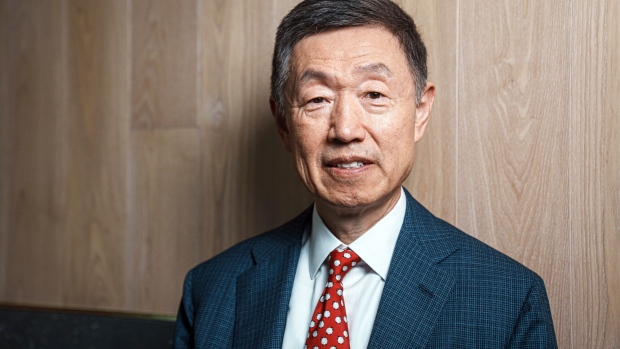Mar 27, 2024
Veteran China Investor Calls for All-Out Property Curb Lift
, Bloomberg News

(Bloomberg) -- One of Asia’s best-known private equity investors is proposing a complete removal of home-buying restrictions in China, arguing the country is far from facing a severe oversupply in residential housing.
“When the market is too slow, the existing buying curbs add frost to snow,” Shan Weijian, executive chairman of Hong Kong-based PAG, wrote in an emailed commentary on Wednesday, invoking a Chinese phrase that means adding insult to injury. “Even though various regions have relaxed measures, it’s time to remove them completely.”
Shan pointed to Hong Kong as an example where transactions in new homes have recovered after the government scrapped all demand-side restrictions to boost the property market. The co-founder of PAG, which manages more than $55 billion, refuted concerns that China’s residential market is facing a significant oversupply.
His comments come after local media cited a former statistic bureau official in saying that even China’s 1.4 billion people might not be able to fill up the current existing homes.
Shan labeled those comments “nonsense,” adding that such remarks, which carry authoritative heft, could affect “the entire economy, and even global investors’ view” on such matters.
“If people believe that the real estate sector will never see the light of day, who will dare to buy homes? If people believe that a pillar industry that contributes at least 25% of the economy is unsalvageable, what hope is there in the economy?Who would dare to invest?” Shan said.
He cited January research by Gao Shanwen, chief economist at Essence Securities, saying that China still saw robust sales for second-hand homes last year, underscoring demand.
Read More: China’s Obsessed Dealmaker Passes TPG, Carlyle as Asia PE Booms
China’s commercialized residential space stood at 14.4 billion square meters based on the aggregate of the last three decades, while the average living space per capita was 41.76 square meters, Shan said citing statistic bureau figures, deducting that it can house only 345 million people. Based on the construction speed of the last 30 years, it will take another 120 years to build enough housing to fulfill the demands of 1.4 billion people, he said.
As China’s real estate slump enters a fourth year, it’s weighing down economic growth and denting consumer confidence. The nation’s housing minister said in early March that China still faces a “severe task” in stabilizing the market.
Read More: A 99% Bond Wipeout Hands Hedge Funds a Harsh Lesson on China
The private equity dealmaker said major shareholders of Chinese developers should bear the loss from debt restructuring and bankruptcy, not creditors. Instead, global bondholders have been crushed by the meltdown, with more than 250 dollar bonds issued by Chinese real estate firms defaulting, according to data compiled by Bloomberg.
PAG itself is a big investor in Dalian Wanda Group Co.’s mall operator, which is currently seeking to lure new investors to tide the company over.
Shan said the diminishing value of homes is also weakening consumption. People “are afraid of or don’t want to spend anymore,” he wrote. Therefore, removing buying curbs should be considered, he said.
The real estate market “has not yet taken a turn for the better,” said Shan, adding that it’s necessary to make sure now that policies don’t overkill.
--With assistance from Kiuyan Wong and Cathy Chan.
©2024 Bloomberg L.P.





